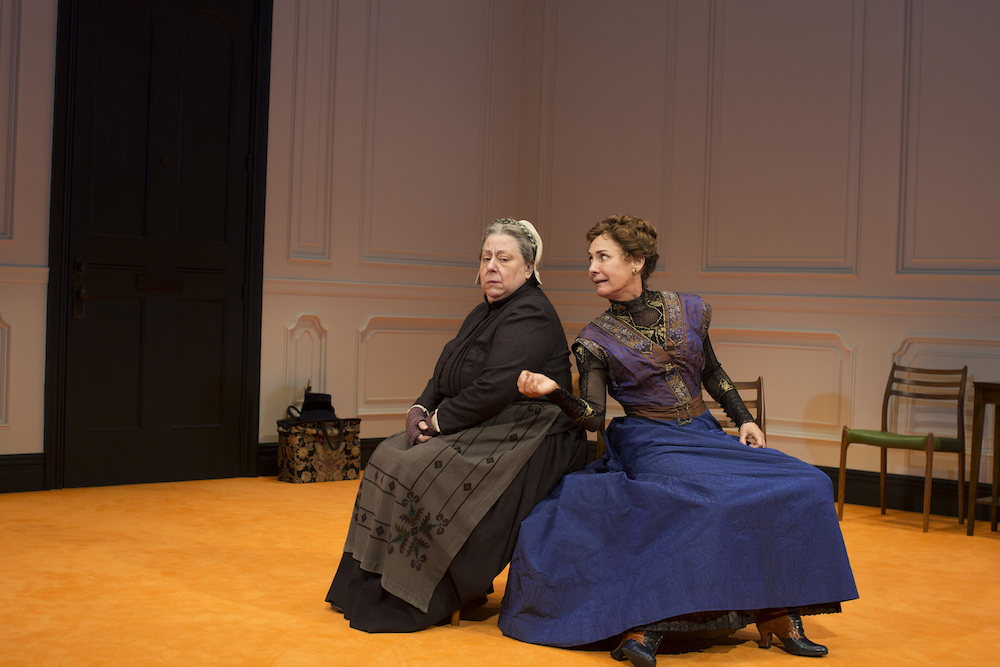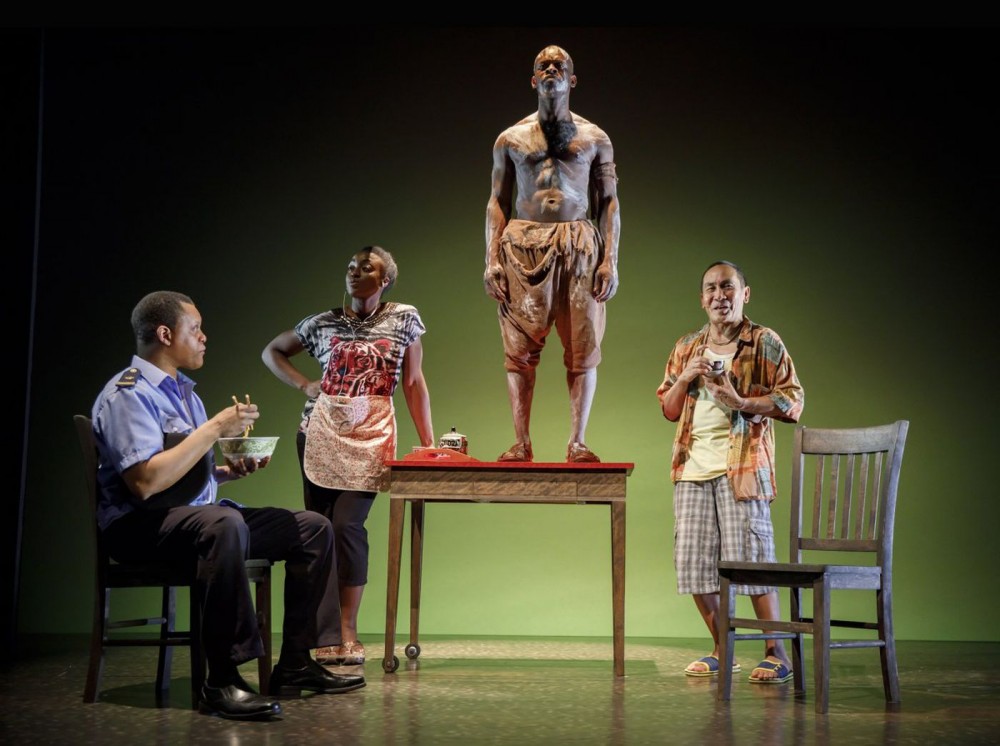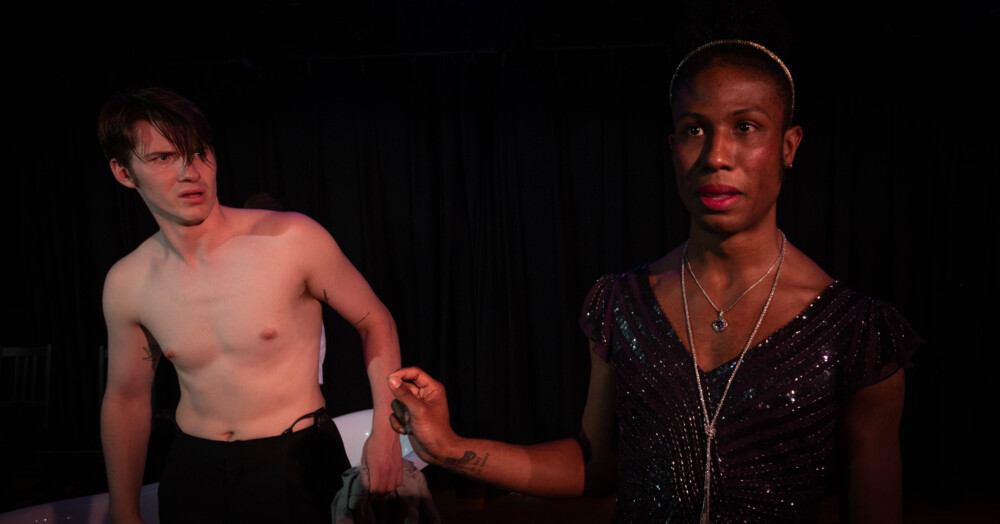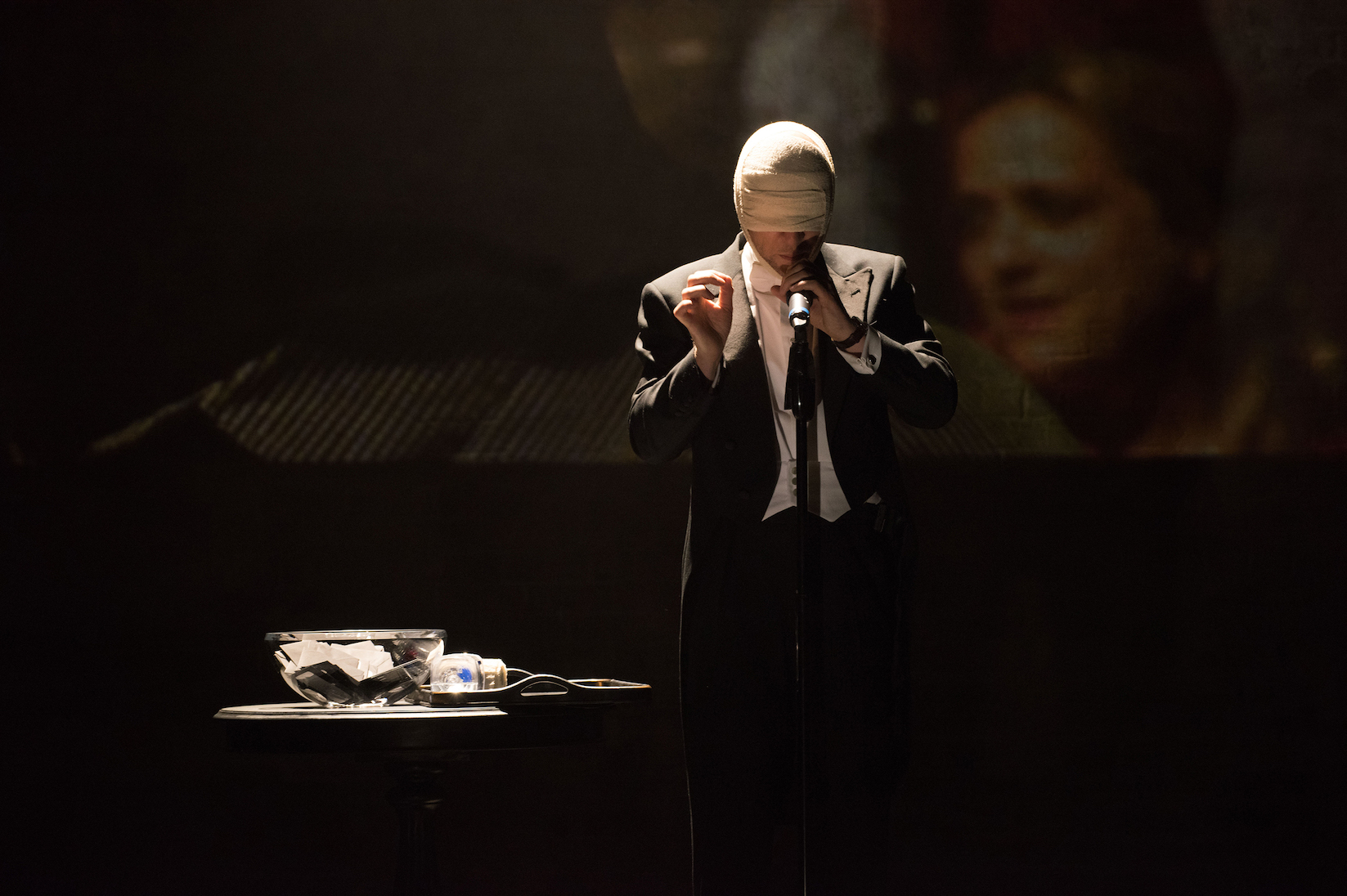

“War teaches people nothing.” – Bertolt Brecht
by Monica Charline Brown
Mother Courage and Her Children—Bertolt Brecht’s dramatic method of processing the rise of the Nazi party and the beginnings of what ultimately led to the Second World War—is widely considered (along with The Threepenny Opera) his greatest work. Methodically analogous to Greek tragedy, Brecht employs an “epic” style of writing with the intention of arguing with and persuading audiences to understand lessons through cautionary tales. The word “epic” immediately conjures up images of spectacular technical effects, giant sets or impressive costumes. While this could very well be a tactic, the historical context of an “epic” can be equally and perhaps better achieved in a very intimate setting. The Harold Clurman Laboratory Theater Company, under the direction of John Gould Rubin, executes this principle exquisitely. Transforming Stella Adler’s Studio G into a German beer hall, complete with beer and sausage available for purchase, the actors double as the band on guitar, banjo, trombone, violin, clarinet, and accordion.
Unlike the recent, highly-anticipated Classic Stage Company production’s choice to set the tale in contemporary Congo, the company here goes with Brecht’s original intention of the action taking place during the Thirty Years War (1618 to 1648). Historically defined as a Central European succession of wars concentrating on the Catholic versus Protestant crisis, the war was certainly one of the most devastating clashes in European history. There really could not be a more a propos time to stage a drama rooted in religious conflict, taking into account the relevance of the terror Americans face today by extremist zealots such as ISIS. With Mother Courage especially, Brecht paradigms how not to live this life by dehumanizing war, baring the blindness of the business and politics involved.


Andreea Mincic’s rustic scenic design consists of house seating as a few tables on either side of the room in conjunction with a small stage and the famed wagon, allowing freedom to move around and establish the playing space of the scene. The walls are covered in brown kraft paper and chalkboards with primitive drawings and text. The actors spiritedly interact with the audience during scene changes, even refilling drinks, and by acting sitting next to audience members or standing on a group’s table. The outcome is a haunting contrast of the frivolity of expression and the dark and tragic plot of the actual piece. The audience is viscerally confronted, attaining an intimacy that allows for freer comedy and subsequently creating a harder to swallow drama. Chuan-Chi Chan’s intelligent lighting design expertly contributes to this effect, even having actors at times prop up lamps to generate evocative visuals.
In a singular word, the entire ensemble is primal. Costumer Designer Sherry Martinez creates a striking look with tattoo-esque markings across actors’ bodies and faces, some even suggesting emaciation, and a “bad-ass” theme containing leather, corsets, and combat boots. A very interesting aspect of the production is the choice to cast opposite genders in a significant number of the roles. It is a fascinating twist that brings up the inquiry, for example, of why sometimes females playing males are in skirts, but sometimes in pants. The fundamental question becomes determining the overall objective of gender bends.
Angela Vitale, as the title character, crafts a tragic heroine who is fast-talking and smug, covering a bellowing, maternal underbelly yearning to boil over. The standout presence of David Tillistrand’s pragmatic and hidden-rage’d Chaplain alongside Chuck Montgomery’s mischievous and sardonic Cook is magnificent. Mother Courage’s children are equivalently stunning and tear-jerking, logging Estelle Bajou as the feral Eiliff, Felix Birdie as the animated Swiss Cheese, and Katie Willmorth as the vulnerable Kattrin. Tobias Christian Wong, also the genius composer for the production’s original music, is scene-stealing in drag as Yvette. Lastly, Sandra Tauro (exquisitely spoken German by the way, perhaps originating from growing up in Germany) and Franca Vercelloni, more than excel in rounding out the ensemble.
This production is genuinely intended for people who love the theater by people who love the theater. It is impossible not to paint personal quandaries and disputes as relatable. Make sure to mentally prepare for an extended evening, though, because the production does not cut anything out and it rounds out at nearly four hours with one intermission.
Mother Courage and Her Children. Through February 20 at Stella Adler Studio of Acting. 31 West 27th Street, third Floor, between Broadway and Sixth Avenue). www.stellaadler.com
*Photos by AK 47 Division





















